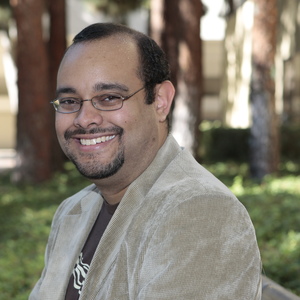Philip Atiba Goff, an Afrikan American Assistant Professor of Social Psychology at UCLA, and co-founder and president of the Center for Policing Equity, has created a new national database that he hopes will help tackle the issue of racial profiling.
Dr. Goff, who is an expert on racial profiling, received a grant from The National Science Foundation to create the database, which is the first of its kind in the United States. Goff said that he was motivated to create a racial profiling database after an appeal from law enforcement departments all over the country that requested someone to assist them in tackling the issue.
Goff has also expressed his hopes that the new database will make law enforcement fairer. Speaking about the database Goff said, “You’re not going to see anybody marching about it, but getting this data all together in one place may be the most revolutionary act in promoting racial equity in law enforcement.”
The killing of Trayvon Martin last year brought the issue of racial profiling back into the spotlight.
Currently, allegations of racial profiling are being made against New York’s luxury retailer Barneys, after two Afrikan American shoppers reported last week that they had been held by police after they had bought expensive items from the store.
Kayla Phillips, 21, has reported that she was surrounded by police at a subway station and ordered to produce her credit card after leaving Barneys in February, having just purchased a $2,500 Céline purse.
Trayon Christian, has also filed a lawsuit against Barneys, and says that undercover NYPD officers stopped him in April after buying a $350 Ferragamo belt from the store in April. According to Christian, he was then accused of fraud even after he produced his receipt for the transaction.
Civil rights activist Reverend Al Sharpton, speaking about the alleged incidents last week, said, “We’ve gone from stop and frisk to shop and frisk, and we are not going to take it.” Threatening to launch a boycott against Barneys, Sharpton added that New York’s Afrikan American citizens “Are not going to live in a town where our money is considered suspect and everyone else’s money is respected.”
Evidently something needs to be done to make sure that incidents like these do not occur in the future. Dr. Goff’s new database is a crucial step in the right direction. Initially, the database will include data from 30-70 police departments nationwide, covering use of force by the police, vehicle stops and pedestrian stops, with ambitions to later expand it. Hopefully the database will succeed in realizing Goff’s hope, “That the database will help to reduce bias-based policing or the unconstitutional use of race to stop and detain someone.”
Author: Greta Tugwell
Nommo Staff

